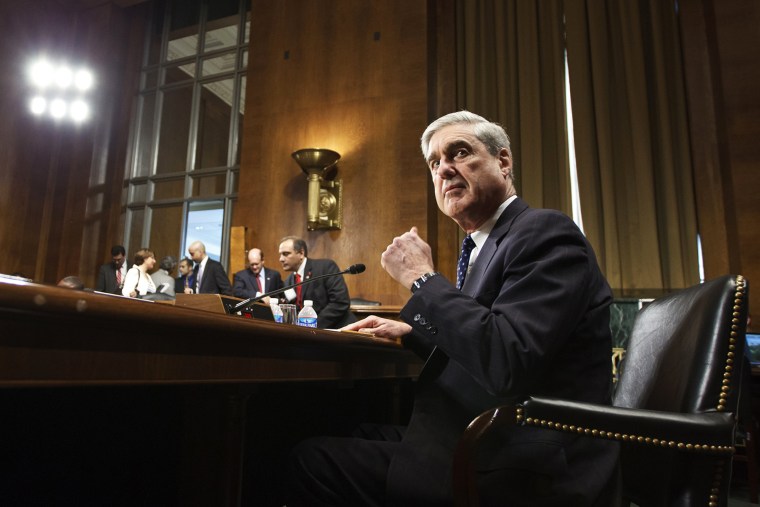Last August, there was at least some bipartisan support for Senate legislation intended to protect Special Counsel Robert Mueller from Donald Trump. At the time, there was considerable chatter about the president possibly trying to fire the head of the Russia investigation -- possibly touching off a political crisis -- and several members saw value in proactive steps to shield the probe from White House interference.
Soon after, however, Republicans lost interest. In October, Sen. Lindsey Graham (R-S.C.), a co-sponsor of one of the bills, said, "I don't feel an urgent need to pass that law until you show me that Mr. Mueller is in jeopardy." A few months later, Sen. Thom Tillis (R-N.C.), the co-sponsor of a related measure, also said his proposal could wait.
Now that Trump is going after Mueller by name, and one of the president's attorneys is calling for an end to the investigation, those who prefer passivity have a difficult case to make. House Intelligence Committee Ranking Member Rep. Adam Schiff (D-Calif.) made a compelling case yesterday on ABC's "This Week":
When asked what Congress should do if President Trump opts to fire Special Counsel Robert Mueller, Schiff responded saying, "I would hope that it would prompt all Democrats and Republicans in the House to pass an independent counsel law and reinstate Bob Mueller. This would undoubtedly result in a constitutional crisis and I think Democrats and Republicans need to speak out about this right now," continuing, "Members need to speak out now, don't wait for the crisis."
And while there was no shortage of other Democrats saying the same thing over the weekend, the question, of course, is whether the Republican majority is inclined to agree.
Also on ABC's "This Week," Sen. James Lankford (R-Okla.) seemed confident that there's no need to leap into action. "I don't see the president firing him," the senator said in reference to Trump and Mueller. Asked about possible legislation to protect the special counsel, Lankford, a member of the Senate Intelligence Committee, added, "I don't even think that's going to be necessary, because the president's not going to fire him."
I continue to find this a difficult perspective to understand. Trump has already explored firing Mueller -- and by some accounts, he's lied about it -- and that was before this weekend's apparent escalation.
On the flip side, there were a handful of GOP lawmakers who were willing to go further -- including Lindsey Graham, who pledged "to make sure that Mr. Mueller can continue to do his job without any interference." That said, most Republican leaders remained silent, and even those who publicly raised concerns weren't explicit about what they would do if the president tried to fire the special counsel.
Complicating matters, another member of the president's legal team, Ty Cobb, issued a written statement last night. "In response to media speculation and related questions being posed to the Administration, the White House yet again confirms that the President is not considering or discussing the firing of the Special Counsel, Robert Mueller," Cobb said.
Whether his client agrees remains an open question.
